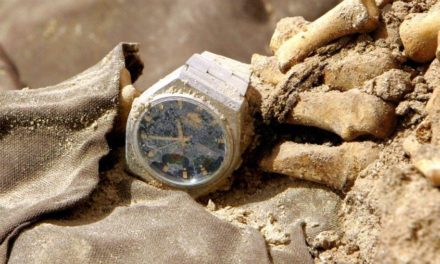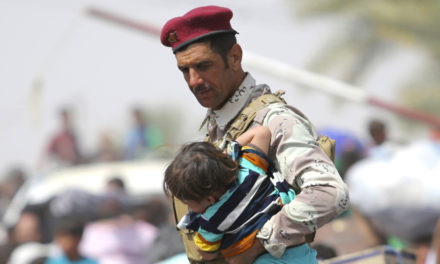It is said that mismanagement is the illegitimate father to all types of corruption (administrative, financial, security, and social). Strong management comes from a firm will; this firmness depends on many attributes such as A) the clarity of purpose; B) the justice of the cause; C) the legitimacy of the objectives and D) the aspirations of the oppressed to the realization of their right.
We have heard more than enough from senior Iraqi officials who claim that the next year is the year of construction or the year to fight against corruption or … etc. We simply need these officials to focus on limited and important issues (such as corruption cases for large contracts at various ministries) rather than too many promises with too few tangible results.
Post 2003 Republic of Iraq’s image was built on the ruins of decades of rule by the republic of fear of Saddam Hussein. Here one cannot escape admitting that the prestige of the Iraqi state is not as effective (or deterrent) as it used to be, and that there are many violations committed against the prestige of the state by political partners. The preservation of prestige of the state is not something beneficial but essential and it is a pivotal foundation for ongoing state building. Do we get this, I hope so?
There is almost a total agreement from the international community and Iraqis alike that the borders of the current Iraqi State will not change despite its fierce pursuit by international terrorism entities such as Daesh. From the other side, there is almost likewise agreement that the cohesiveness of the Iraqi state is not firm and that time itself will not help to increase this cohesion. There are lots of indicators that can reflect on the firmness of Iraqi state cohesion including A) good public services; B) consistent implementation of rule of law; C) consolidation of democracy; D) a common understanding of the constitution; E) preservation of the integrity of the judiciary; and finally, F) good governance. Let us work together to restore the cohesion of the state which leads to our salvation.
Oil rentier state economy is like a person who will continue to spend his inherited money lavishly regardless of what remains of the inheritance, or as to how to increase it to protect him/her from the treachery of time. Here comes the question about the extent of realization of the Iraqi society to the seriousness of their financial situation which we face and the harm from overdependence on a petroleum commodity which is becoming readily available to all and vulnerable to competition from other energy sources (such as renewable energy or other).
In addition to questioning the lack of diversity of revenue sources, an additional question is being asked about how will we tighten the belt on state overhead while we are still increasing the size of government jobs? Do we have the courage to be honest with our citizens (explaining to them in numbers and facts, and not in general headlines) about A) the magnitude of the challenges we face; B) the depth of the problem; C) the impact of lack of planning; and D) the nature of the required structural and cultural change to adequately address these challenges? How can we simply plan without a population census which we have not conducted for decades now? Let us not forget that the clock continues ticking.
When we observe the evolution of societies we clearly see that there are three foundational references (political, social and religious) to determine A) the nature of this society; B) their future collective campus and direction; C) the limitation of their ability to be flexible; and D) the degree of their social harmony in accommodating and tolerating each other. Bearing in mind that the strength, speed and efficiency of the development of Iraqi society depend on the degree of harmony and alignment between these three references above.
In the Iraqi case, fundamental questions are being asked about A) the clarity of these references; B) their relative strength; C) their credibility; and finally D) their alignment. Without finding answers to these questions, our community will be lost; not be effective and not be able to have traction for vital positive development in society’s various vital fields.
With the imminent defeat of Daesh and as we read the final chapter of Daesh’s book of terrorism in Iraq, a question has been coming up about the nature of the next book and its key characters? Is it possible that these new characters are led by the descendants of Al-Qaeda and Daesh? Or will we foresee a totally new narrative about characters who are engineers and teachers building a state and its society away from violence and nearer to normality of life with its joyfulness away from the grief of terrorism? We have had enough of Daesh and its parents’ terror organizations; let us work together for a better tomorrow.
Have we set ourselves clear security and social cohesion objectives while we know the clock is quickly ticking with our massive population growth of nearly 3%? Perhaps we will discover soon, via this reflection, a realistic review of our own situation by diagnosing our weaknesses and identifying our strengths. Will this review include A) the resolution to some of the contradictions of our constitution, B) the nature of our zero-sum culture; C) the fractured structure of our political process that needs to be substantially restructured because it does not meet many of our needs and aspirations while we want to cement our democracy and strengthen our security?
Many important questions and few convincing answers. Let us hope that time will help us with healing from our, self and by other, inflicted wounds. This hope will do better with some meaningful actions too.
Happy Easter

Lukman Faily
Lukman Faily served as Iraqi ambassador to Japan and the United States.










